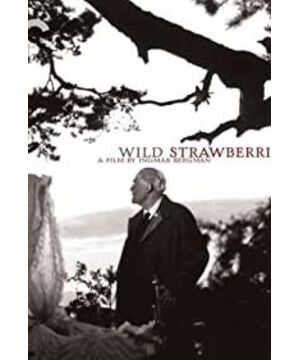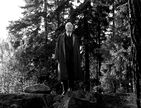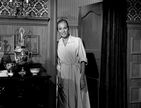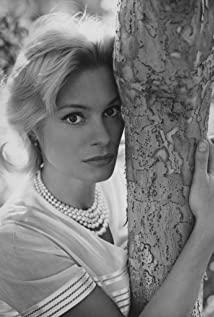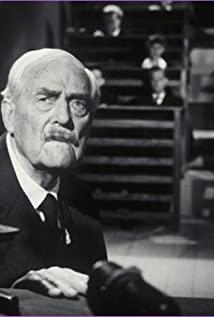“Then it struck me: supposing I make a film of someone coming along, perfectly realistically, and suddenly opening a door and walking into his childhood? And then opening another door and walking out into reality again? And then walking round the corner of the street and coming into some other period of his life, and everything still alive and going on as before? That was the real starting point of Wild Strawberries.”
"That's a lie. The truth is that I am forever living in my childhood."
– Ingmar Bergman
I was haunted by Bach's Prelude and Fugue No. 8 in E-flat minor after I watched Wild Strawberries—I simply couldn't stop listening to it. I have listened to Bach's Well-Tempered Clavier for years. But for the first time, I sensed something different the moment I heard Sara play this piece in Isak's dream. I was seized by inexplicable emotions when the simple chords started repeating. This piece in my memory has always been the sad one—slower and more somber than all the previous seven pieces—almost like a funerary march. Now listening to this fugue, I hear the hidden frenzy and turmoil among the atmosphere of sadness and serenity, and agitation within melancholy. Under the stunted sobbing leaps, feverish outbreaks culminate and persist; towards the end, this purgatory recede and reconciliate with the order of the world. I came to a weird realization—Isak's life is like this fugue; life is like a fugue.
This fugue has three voices built on the same subject. The fugue progresses yet the subject keeps coming back in various forms—inverted, augmented, or combinations of these two. One voice is mirroring another, one voice moves twice as slow as another… Each voice repeats and grows on its own yet come together harmoniously in a strictly arranged structure. Beneath the cold architecture of sounds, waves of chaotic energies confuse time and space—voices flee from and chase after each other, one voice doesn't stay on one dimension—in this game of repetition, they weave together, revolving around the same subject yet transcending this subject.
Considering the severity of the subject—the looming sense of death, it is rather unusual that Bach only uses three voices to this fugue. Did Bergman choose this piece because of the idea of three ? Throughout the film, there are many questions concerning three—three generations (Isak's mother, Isak, Evald), marital affair (Isak, Isak's wife, and the other man), the two love triangles (Sara, Isak, Sigfrid in parallel with Sara, Viktor, and Anders), the ending ( Isak and his parents) … There has never been a resolution in three. I personally interpret the three voices as Isak's three stages of life—childhood, adulthood, and aging. Fugue is a game of fleeing and chasing. All the things he flees away from in life come chasing after him in his dreams: broken marriage, fear of incompetency and career failures, lost love, loneliness… What most haunts him is that he realizes he spends his whole life fleeing from life, yet in his nightmare, when death chases after him, he too wants to flee from death. Memories from a previous life stage foreshadows his later life, and in his later life,these earlier repressed thoughts keep coming back. Like a fugue, his three life stages lose their linearity—they mingle together, vary yet repeat again and over again. The sense of restlessness hideously creeps out from the three voices—time and space are no longer defined in a fugue; all the memories, imagination, and dreams spin and weave new patterns that haunt him stoplessly. The outbreaks of agitation among the sadness and serenity in the fugue almost mimic his reaction to life—how would you feel if you realize towards life the end of your life that you have never lived?imagination, and dreams spin and weave new patterns that haunt him stoplessly. The outbreaks of agitation among the sadness and serenity in the fugue almost mimic his reaction to life—how would you feel if you realize towards the end of your life that you have never lived?imagination, and dreams spin and weave new patterns that haunt him stoplessly. The outbreaks of agitation among the sadness and serenity in the fugue almost mimic his reaction to life—how would you feel if you realize towards the end of your life that you have never lived?
But what saved this fugue out of this potential disastrous chaos? The recurring subject is the soul and bone of this piece—all the variations originate from it yet return to it. Isak's life begins in childhood and at the end of the film, he returns to his childhood. He has never lived, yet in that dream, he lived . The subject of his fugue-like life is childhood. In the end, as scenes of childhood and his present life interweave, we hear short and almost identical musical phrases plucked on strings, each time the phrase is delivered slower, and the final phrase does not end as a separate verse but is accompanied by other phrases. As these phrases coming together harmoniously, we see Isak's peaceful smile of reconciliation. Finally, childhood comes back and integrates into his present life—he is saved.
This is perhaps why Bergman wrote, “The truth is that I am forever living in my childhood.” A fugue lives on this subject, just like Isak lives on his childhood—this childhood is no longer the concrete period in his life, but it is rather like a blanket that warms and protects him from the reality. We all never grow out of childhood, and we never want to grow out of it; to this day, whenever I am insecure, sad, and lonely, I dissolved into my childhood memories—hiding in bamboo forest, catching dragonflies, my grandma braiding my hair… In childhood, there is never coldness or loneliness, and we have everything . Isak has his parents. I have my grandparents. And you have…
View more about Wild Strawberries reviews


